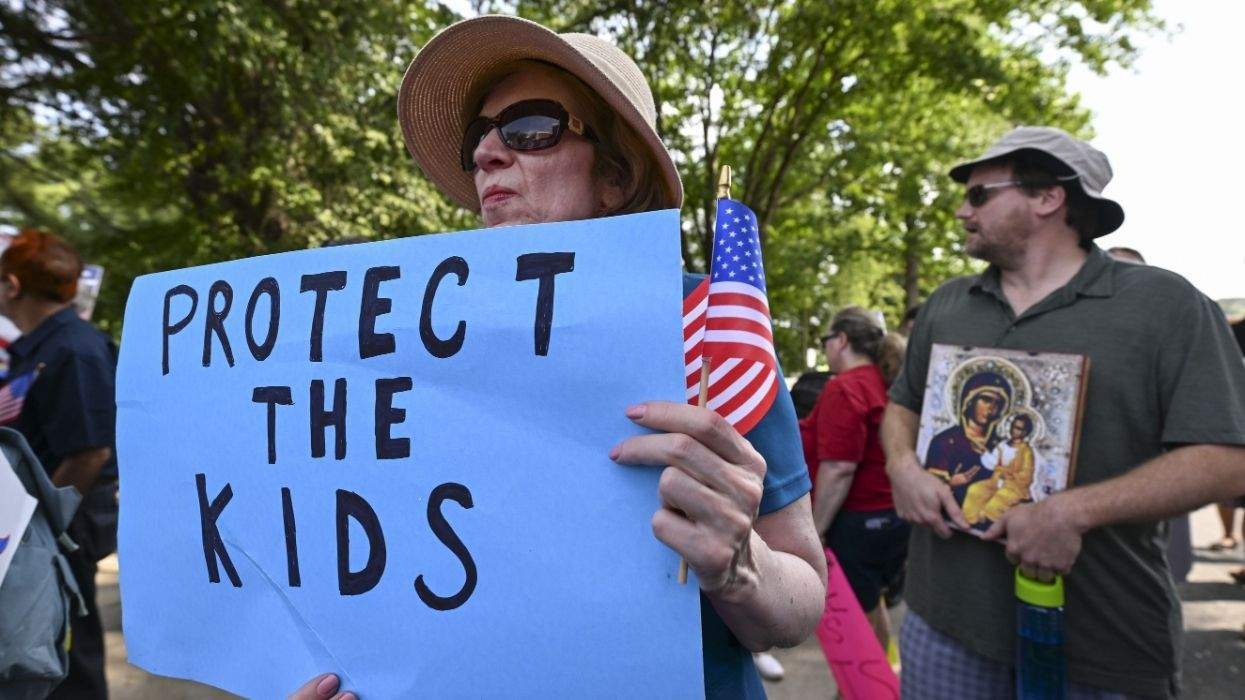U.S. Senate majority leader Bill Frist on Tuesday rejected compromise offers that would allow minority Democrats to continue to block judicial nominees, saying all of President Bush's past and future court choices deserve confirmation votes from the GOP-controlled Senate. "At the end of the day, one will be left standing...the Constitution, which allows up-or-down votes, or the filibuster," Frist said. Democrats blocked 10 of Bush's appellate court choices through filibuster threats, which means those nominees would have to get 60 votes before they could be confirmed to lifetime seats on the nation's second highest court. They have threatened to block again the seven that Bush renominated this year as well as future ones they consider outside of the mainstream. Republicans in turn have threatened to use their majority to change senatorial rules to require a simple majority vote for confirmation, in part because they fear a Democratic blockade could affect a Supreme Court vacancy if a high court seat opens in Bush's second term. To avoid that showdown, Senate minority leader Harry Reid said Tuesday he had offered Frist a compromise. The Nevada Democrat refused to give full details but said part of that compromise would require Republicans to back away from attempting to ban judicial filibusters. But Frist, earlier in the day, said he would not accept any deal that keeps his Republican majority from confirming judicial nominees that the Senate Judiciary Committee has approved. Frist also would not discuss specifics but said he would not advocate the withdrawal of any judicial nominee and would continue to insist they all get confirmation votes. Below is a list of President Bush's seven blocked judicial nominees and the courts on which he would have them serve. All were nominated in Bush's first term, rejected, and then renominated this year: -William H. Pryor Jr., for the 11th circuit court of appeals in Atlanta. Bush gave the former Alabama attorney general a temporary recess appointment in 2004 and renominated him for a lifetime seat on the court. Awaiting action by the Senate Judiciary Committee. Democratic senators have objected to his comments and writings on abortion and homosexuality, which included a Supreme Court brief in a Texas sodomy case that likened gay sex acts to "prostitution, adultery, necrophilia, bestiality, possession of child pornography, and even incest and pedophilia." -Janice Rogers Brown, for the U.S. circuit court of appeals for the District of Columbia. Approved by the Judiciary Committee, awaiting vote by full Senate. Democrats say the California supreme court justice is a conservative judicial activist who ignores the law in favor of her own political views. Among her many extremely conservative positions, she has voted against the rights of gays in the state. -Priscilla Owen, for the fifth U.S. circuit court of Appeals in New Orleans. Approved by the Senate Judiciary Committee, waiting on Senate vote. Democrats say the Texas supreme court justice is an ultraconservative activist and fault her rulings against consumers, working people, and minors who want abortions. She was one of Bush's first judicial nominees after he won the White House. -William G. Myers III, for the ninth U.S. circuit court of appeals in San Francisco. Approved by the Judiciary Committee, awaiting vote by full Senate. Democrats say the former Interior Department solicitor has an anti-environment agenda and opposed environmental protections while at the Interior Department and as a private lawyer and lobbyist for cattle and mining interests. -Henry Saad, for the sixth U.S. circuit court of appeals in Cincinnati. Renominated. Democratic senators Carl Levin and Debbie Stabenow of Michigan have said they would not approve new nominations to the sixth circuit because President Clinton's nominees to that court were never given a confirmation hearing by the Republican-controlled Senate. Levin and Stabenow want Bush to renominate Clinton's sixth circuit court nominees. -Richard Griffin, for the sixth U.S. circuit court of appeals in Cincinnati. Renominated. Opposed by Levin and Stabenow because Clinton's nominees to that court were never given a confirmation hearing by Republicans. -David McKeague, for the sixth U.S. circuit court of appeals in Cincinnati. Opposed by Levin and Stabenow because Clinton's nominees to that court never got a confirmation hearing by Republicans.
Search
AI Powered
Human content,
AI powered search.
Latest Stories
Stay informed on important LGBTQ+ news.
Sign up for our email newsletter.
@ 2026 Equal Entertainment LLC.
All rights reserved
All rights reserved
By continuing to use our site, you agree to our Privacy Policy and Terms of Use.
The Latest
More For You
Most Popular
@ 2026 Equal Entertainment LLC. All Rights reserved















